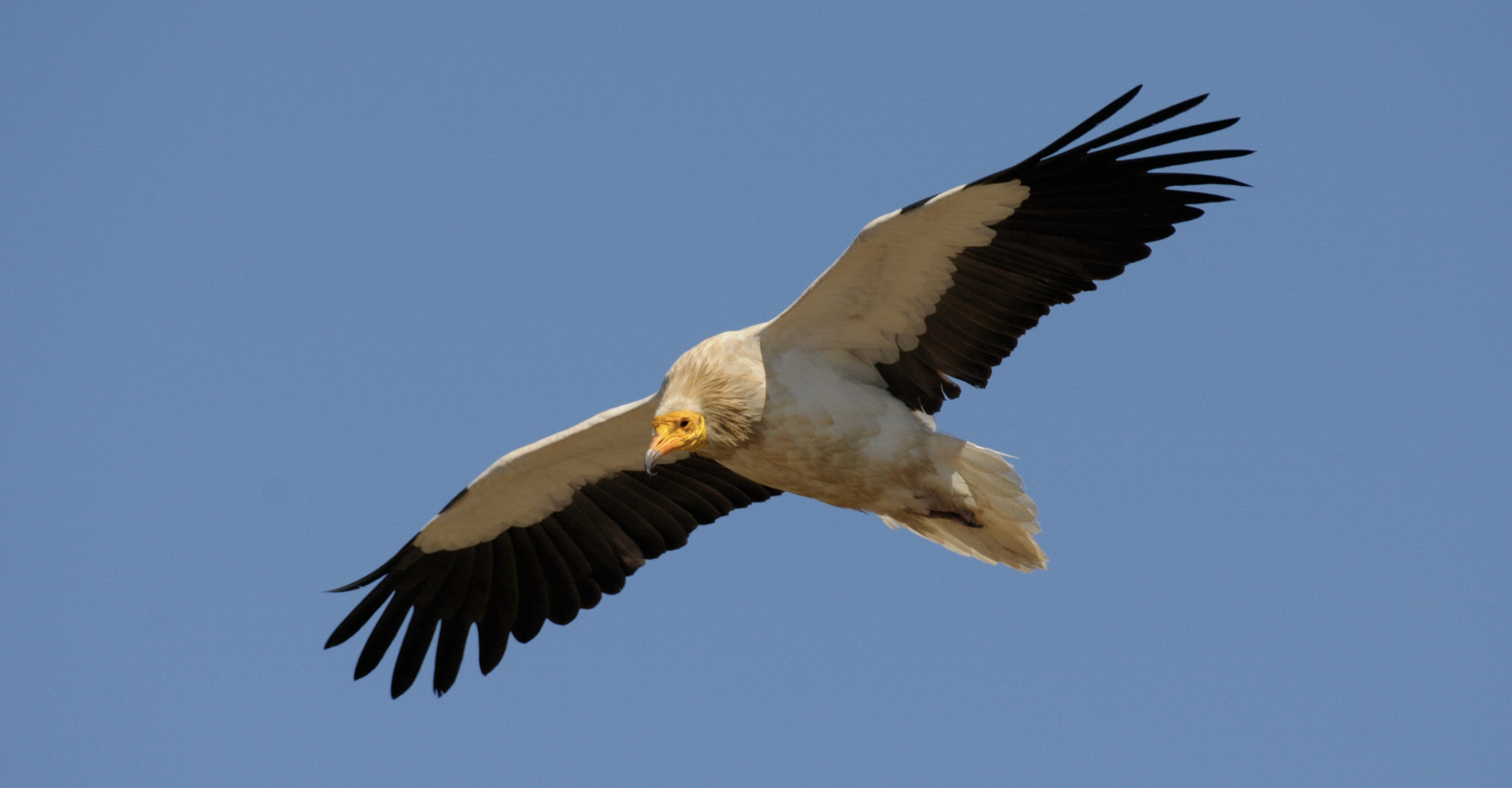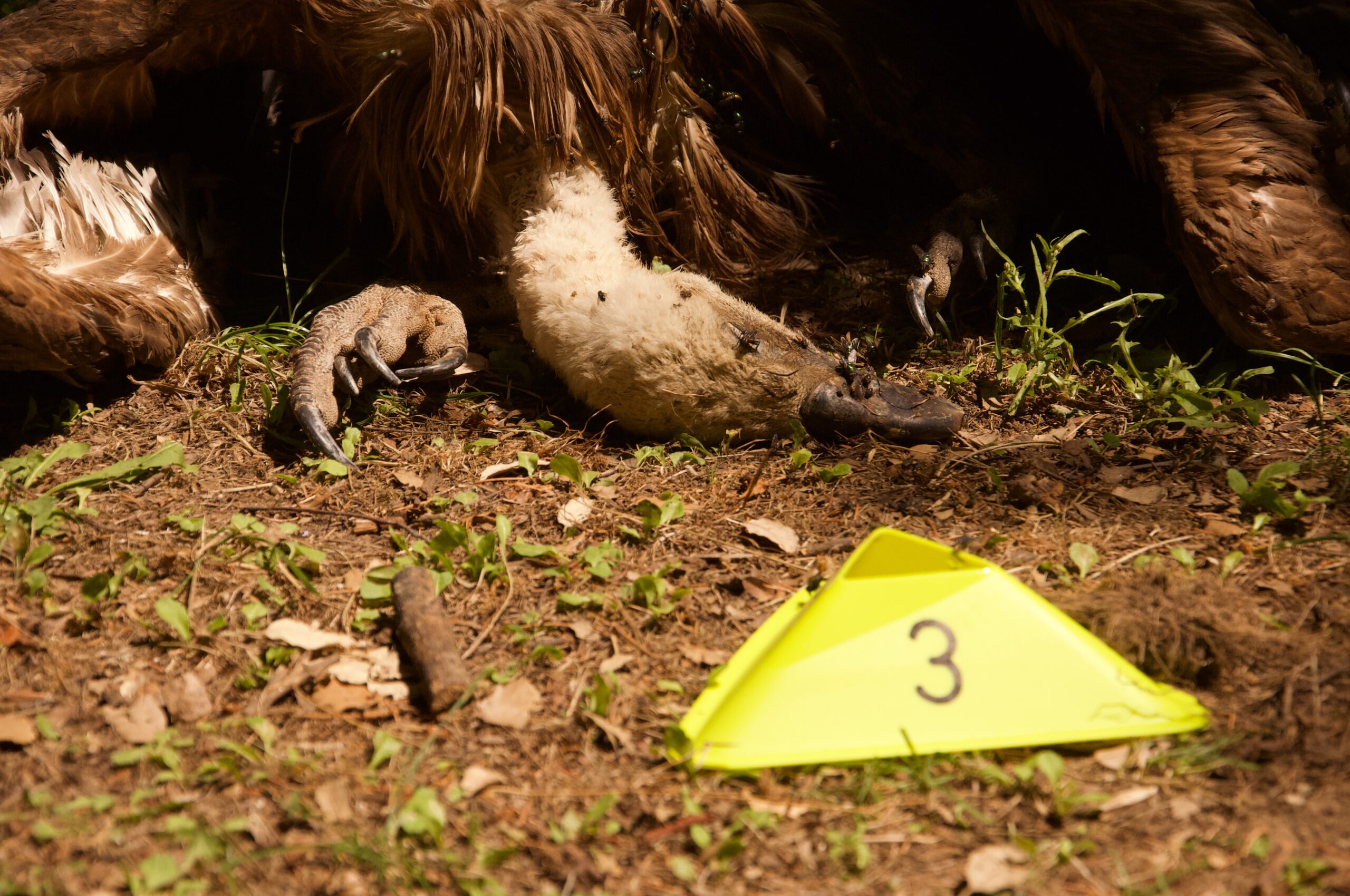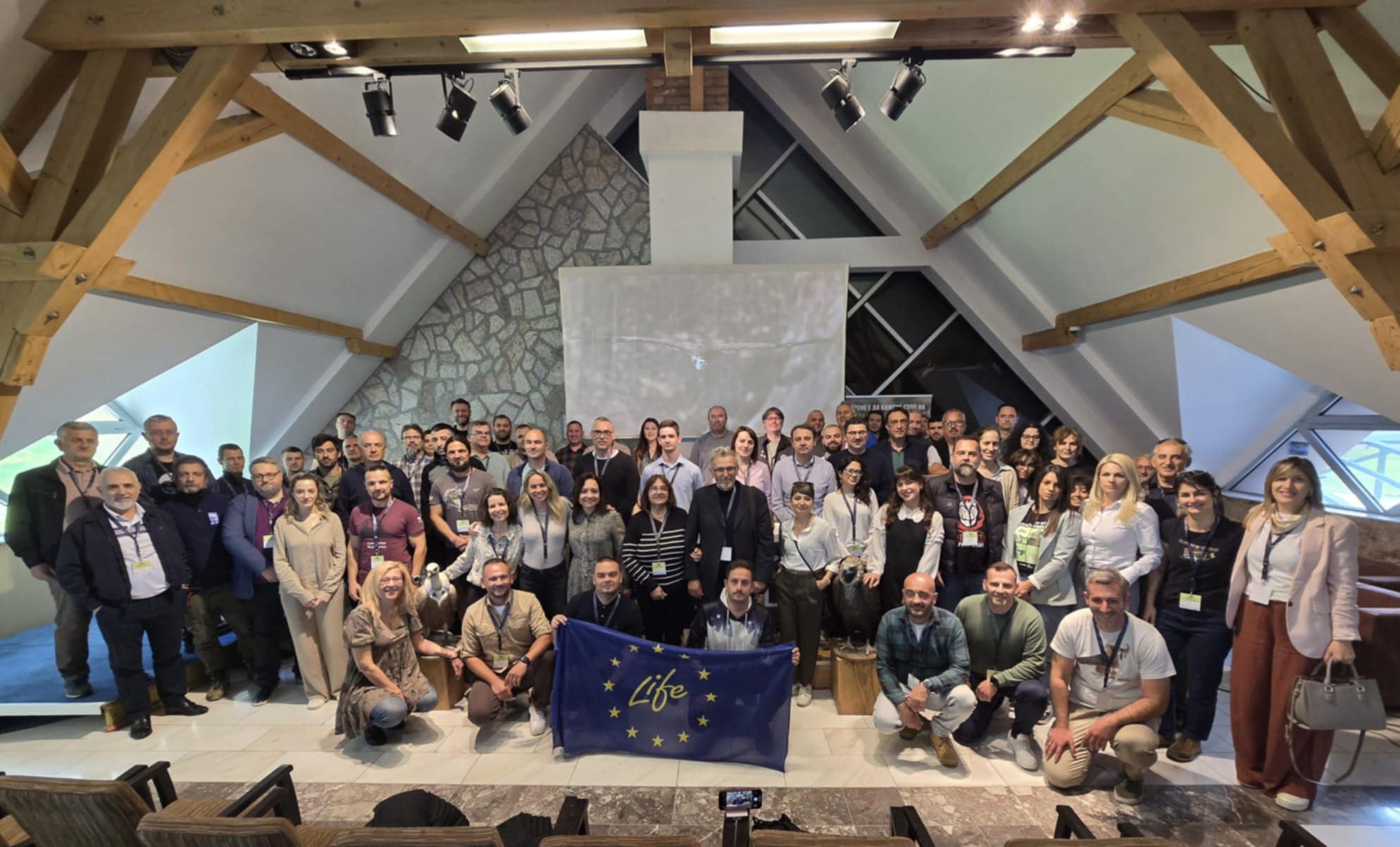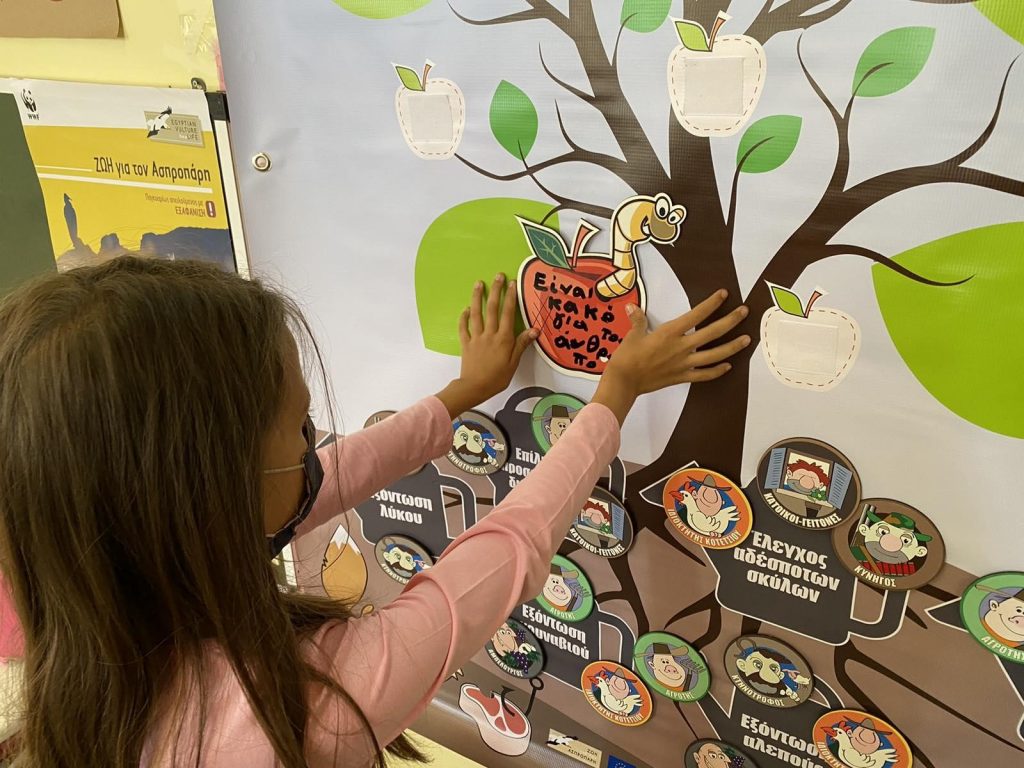
The use of poison baits to kill animals can affect all of us. It is a dangerous and unselective practice that puts both domestic and wild animals at risk, threatening several protected and endangered species like vultures. Many European projects strive to mitigate this severe threat through several targeted efforts. In Greece, our partners recently implemented extensive educational and awareness actions in an effort to reach primary school children, the general public and key stakeholders.
Engaging children with Egyptian Vultures and their conservation
The nature of Thrace needs support from future generations. Therefore, it is crucial to carry out awareness-raising actions at schools to make children appreciate the value of vultures and inspire them to care about the beautiful nature surrounding their communities.
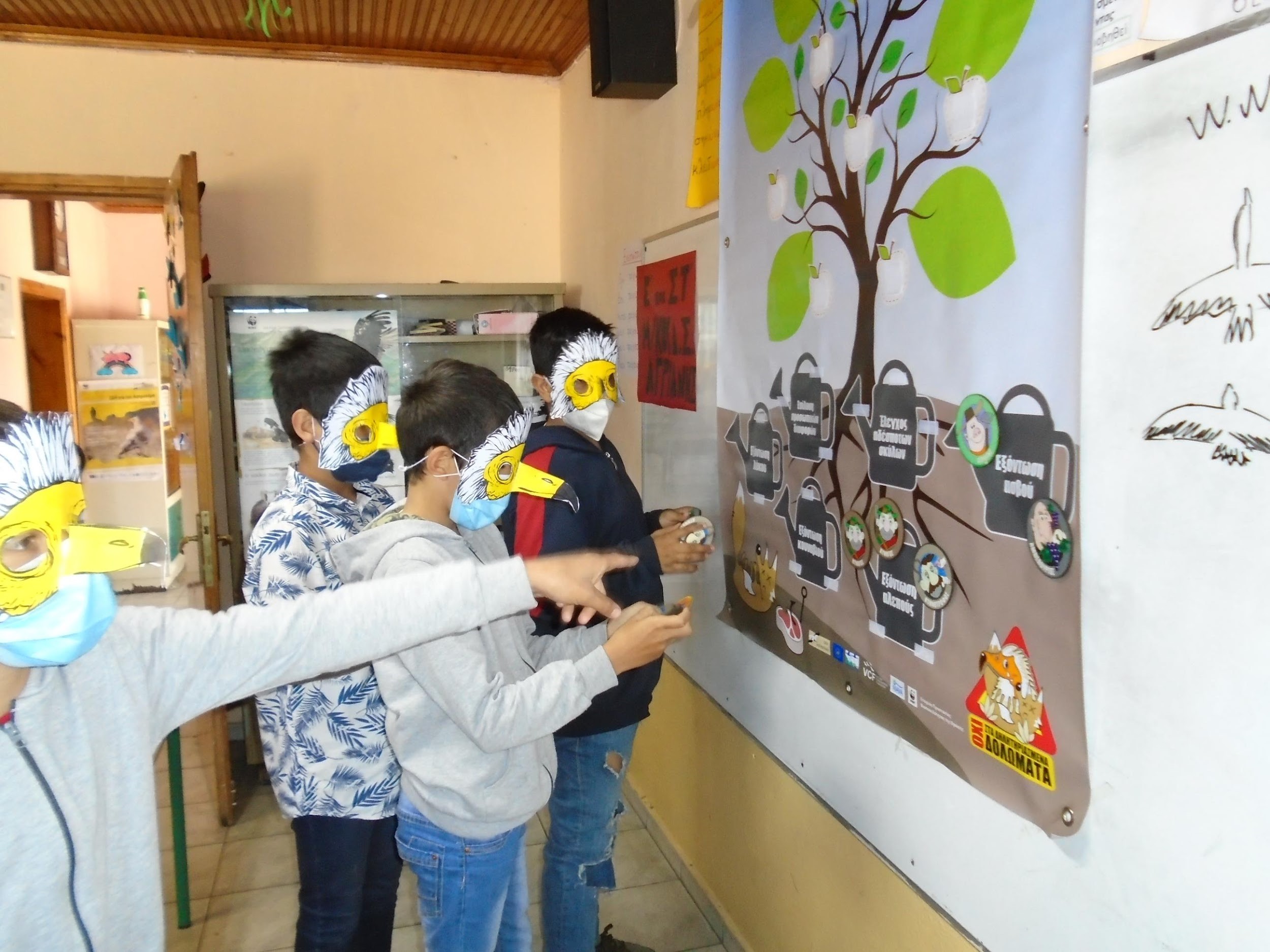


This year, WWF Greece and the Society for the Protection of Biodiversity of Thrace (SPBT) have joined forces to raise awareness about vultures, a natural heritage of Thrace, among pupils of primary schools in mountainous and semi-mountainous areas of Evros Regional Unit. From March to May 2022, 534 children from 19 primary schools from Anthia to Didimoteicho and Mega Dereio participated in either online or face-to-face sessions as part of these efforts.
The project selected the primary schools according to their geographic locations, forest and mountainous areas used by vultures for foraging or nesting. Through the educational presentation, the children had an opportunity to get acquainted with the magical world of vultures and their ecosystem services and to understand how rare they are nowadays, especially the Egyptian Vulture that is on the verge of extinction, with only five pairs remaining in Greece. They also explained why vultures are disappearing, describing the key threats the species face. An interactive wall game called “NO to poison baits” helped illustrate the circle of life and showed that the illegal use of poison baits is the primary reason behind the decline of vulture populations. The game further demonstrated the main drivers and consequences behind this practice and highlighted how complex it is and what actions are implemented to reduce it.
Raising awareness and encouraging citizen engagement
Even though the use use of poison baits, known as ‘φόλες’ in Greek, has been banned in the country since 1993, it is still a widespread practice. Not only does poisoning threaten rare species in danger of extinction, but it also affects working animals, pets, rural economies and even public health.
Various social groups, including livestock farmers and hunters, use this illegal practice to kill ‘undesirable’ animals like predators and pests that can potentially harm livestock or game species. In Greece, several types of poison baits have been recorded, the most common being pieces of meat or whole carcasses laced with pesticides (both legal and illegal). Potassium cyanide baits, typically in a form of a capsule covered with wax, are also widely used in the country. These baits are extremely toxic – when the capsule breaks, it can instantly kill animals through inhalation, digestion, or skin contact, and even pose a risk to humans.
Many of the poisoning incidents that occur in Greece are either not reported or remain unknown, making it difficult to assess the scale and scope of the problem and deal with it properly. It is urgent to identify, manage and properly investigate incidents of this environmental crime to effectively combat this threat. This awareness video encourages citizens to actively participate in the fight against this phenomenon by immediately reporting potential animal poisoning incidents to the competent authorities (Forestry Service, the Police or the National Parks Management Units) and the Poisoned Bait and Animal Detection Team of WWF Greece and SPBT (contact tel: 2554032210). Under no circumstances should citizens contact poisoned baits or animals as they may be putting their lives at risk and jeopardize a criminal investigation.
Fighting poisoning to protect vultures
The awareness actions took place within the framework of the project “Fighting poisoning – reducing vulture (and other scavengers and predators) mortality due to the use of poison baits and lead ammunition across the Mediterranean (Mediterranean Anti-Poisoning Project – MAPP),” implemented by the Vulture Conservation Foundation, MAVA Foundation and WWF Greece.
The interactive wall game was planned under the Egyptian Vulture New LIFE project “Urgent Actions to Strengthen the Balkan Population of the Egyptian Vulture and Secure Its Flyway (LIFE16 NAT/BG/000874).
A big thank you goes to all the principals, teachers and children from the schools, the participants in the awareness video and all citizens active in the fight against the illegal use of poison baits – we (and vultures) appreciate your engagement and support!


